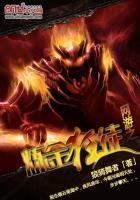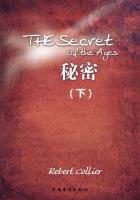They entered by the door at the end of the church, and proceeded down the long aisle that ran the full length of the building, till they came to a cross aisle that led them to the minister's pew at the left side of the pulpit, and commanding a view of the whole congregation. The main body of the church was seated with long box pews with hinged doors. But the gallery that ran round three sides was fitted with ****** benches. Immediately in front of the pulpit was a square pew which was set apart for the use of the elders, and close up to the pulpit, and indeed as part of this structure, was a precentor's desk. The pulpit was, to Maimie's eyes, a wonder. It was an octagonal box placed high on one side of the church on a level with the gallery, and reached by a spiral staircase. Above it hung the highly ornate and altogether extraordinary sounding-board and canopy. There was no sign of paint anywhere, but the yellow pine, of which seats, gallery, and pulpit were all made, had deepened with age into a rich brown, not unpleasant to the eye.
The church was full, for the Indian Lands people believed in going to church, and there was not a house for many miles around but was represented in the church that day. There they sat, row upon row of men, brawny and brown with wind and sun, a notable company, worthy of their ancestry and worthy of their heritage. Beside them sat their wives, brown, too, and weather-beaten, but strong, deep-bosomed, and with faces of calm content, worthy to be mothers of their husbands' sons. The girls and younger children sat with their parents, modest, shy, and reverent, but the young men, for the most part, filled the back seats under the gallery. And a hardy lot they were, as brown and brawny as their fathers, but tingling with life to their finger-tips, ready for anything, and impossible of control except by one whom they feared as well as reverenced. And such a man was Alexander Murray, for they knew well that, lithe and brawny as they were, there was not a man of them but he could fling out of the door and over the fence if he so wished; and they knew, too, that he would be prompt to do it if occasion arose. Hence they waited for the word of God with all due reverence and fear.
In the square pew in front of the pulpit sat the elders, hoary, massive, and venerable. The Indian Lands Session were worth seeing. Great men they were, every one of them, excepting, perhaps, Kenneth Campbell, "Kenny Crubach," as he was called, from his halting step. Kenny was neither hoary nor massive nor venerable. He was a short, grizzled man with snapping black eyes and a tongue for clever, biting speech; and while he bore a stainless character, no one thought of him as an eminently godly man. In public prayer he never attained any great length, nor did he employ that tone of unction deemed suitable in this sacred exercise. He seldom "spoke to the question," but when he did people leaned forward to listen, and more especially the rows of the careless and ungodly under the gallery. Kenny had not the look of an elder, and indeed, many wondered how he had ever come to be chosen for the office. But the others all had the look of elders, and carried with them the full respect and affection of the congregation. Even the young men under the gallery regarded them with reverence for their godly character, but for other things as well; for these old men had been famous in their day, and tales were still told about the firesides of the people of their prowess in the woods and on the river.
There was, for instance, Finlay McEwen, or McKeowen, as they all pronounced it in that country, who, for a wager, had carried a four-hundred-pound barrel upon each hip across the long bridge over the Scotch River. And next him sat Donald Ross, whose very face, with its halo of white hair, bore benediction with it wherever he went. What a man he must have been in his day! Six feet four inches he stood in his stocking soles, and with "a back like a barn door," as his son Danny, or "Curly," now in the shanty with Macdonald Bhain, used to say, in affectionate pride. Then there was Farquhar McNaughton, big, kindly, and good-natured, a mighty man with the ax in his time. "Kirsty's Farquhar" they called him, for obvious reasons. And a good thing for Farquhar it was that he had had Kirsty at his side during these years to make his bargains for him and to keep him and all others to them, else he would never have become the substantial man he was.
Next to Farquhar was Peter McRae, the chief of a large clan of respectable, and none too respectable, families, whom all alike held in fear, for Peter ruled with a rod of iron, and his word ran as law throughout the clan. Then there was Ian More Macgregor, or "Big John Macgregor," as the younger generation called him, almost as big as Donald Ross and quite as kindly, but with a darker, sadder face. Something from his wilder youth had cast its shadow over his life. No one but his minister and two others knew that story, but the old man knew it himself, and that was enough. One of those who shared his secret was his neighbor and crony, Donald Ross, and it was worth a journey of some length to see these two great old men, one with the sad and the other with the sunny face, stride off together, staff in hand, at the close of the Gaelic service, to Donald's home, where the afternoon would be spent in discourse fitting the Lord's day and in prayer.















